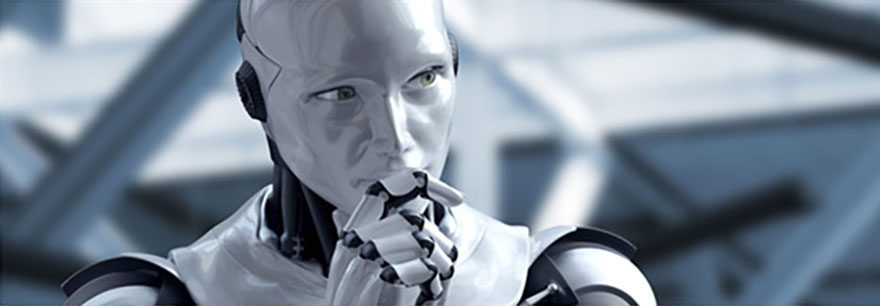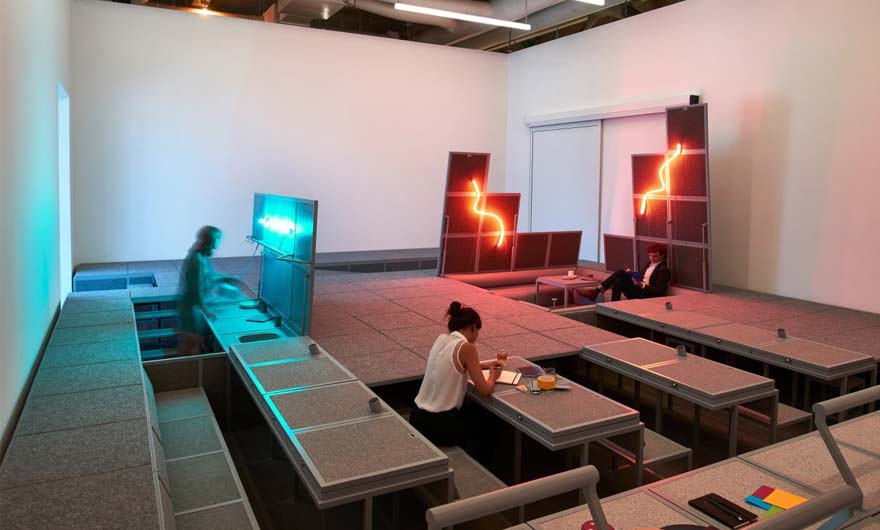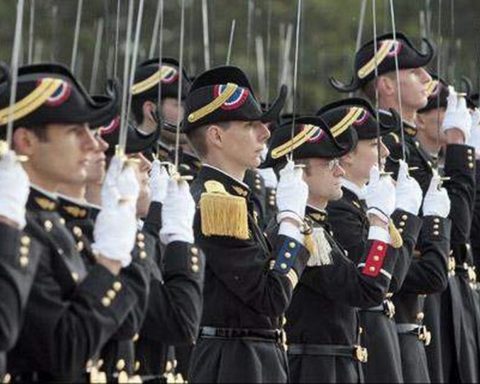Participants at UNESCO World Conference on Artificial Intelligence call for rights-based governance for AI
IThere is a need to ensure human-centred governance of artificial intelligence (AI), agreed the participants in the conference entitled "Artificial Intelligence (AI) and the need for a human-centred governance of AI". Principles of Artificial Intelligence: towards a humanistic approach? which was held on 4 March at the Organization's headquarters.
The Director-General of UNESCO, Audrey Azoulay, opened the Conference by stating: "... I would like to express my deepest gratitude to the Director-General of UNESCO for the support he has given to the Conference.... Artificial intelligence is not a questioning of technology, it is a questioning of our own humanity. A scientific, political, philosophical, ethical questioning... ".
"It is high time to define a set of ethical principles to guide this technological disruption. So that it can serve collective preferences. So that it is based on humanist values. », continued Audrey Azoulay.
Referring to UNESCO's work on AI, the Director-General announced: "We will now be able to work on the basis of a first report of the World Commission on the Ethics of Scientific Knowledge and Technology, the COMEST. This new report on artificial intelligence will certainly provide major scientific support for the Member States' thinking and initiatives. » (1)
Angel Gurría, Secretary-General of the Organisation for Economic Co-operation and Development (OECD), recalled the importance of cooperation to ensure that AI becomes an engine of inclusive and sustainable growth.. "There is no room for error, because while AI fosters optimism, it is also a source of anxiety and ethical concerns. »
Mr Gurría further stressed the need to work with UNESCO in a concerted effort to "make AI less artificial and more intelligent."
Throughout the day, academics, representatives of intergovernmental organizations, ministers, the private sector, actors from the technical community, journalists, and civil society called for the development of ethical principles to govern AI on the basis of transparency and accountability. They stressed the need for data that is freely accessible and respectful of privacy. They stressed the importance of such data, which goes beyond the information traditionally collected by public services, as it feeds into forecasts and decisions that already enable AI to contribute to disease treatment, water resource management or agricultural planning.
But data are not neutral, and several participants noted that in order to put technology at the service of humanity, data that are truly representative and inclusive are needed. Yet half of the world's population is still not connected to the Internet.
Cédric Villani, winner of the Fields Medal in Mathematics and French MP, reminded the audience of the importance of preserving human sovereignty in the face of algorithms, and geopolitical sovereignty in a context marked by strong competition in the field of AI development. Referring to the need to put AI at the service of human objectives, Cédric Villani continued: "the danger is that we may not be able to meet the challenge."
Bunmi Banjo, Managing Director of Kuvora Inc. warned of the risk of falling into the trap of efficiency without considering what is fair and equitable, as decisions taken today will affect humanity for decades to come.
Speakers highlighted the slow pace of development of international normative instruments that have always followed technological innovation rather than anticipating it, which is necessary in the field of AI.
While all speakers stressed the need to develop principles for AI, Fabrizio Hochschild Drummond, Assistant Secretary-General for Strategic Coordination in the Office of the UN Secretary-General, warned that : "The current preference for non-binding international agreements, which marks a shift from cooperation to competition, makes non-binding treaties much more attractive. But not everyone can be expected to behave well. If we let the invisible hand of the market operate freely, we will get useful applications, but our privacy will be exposed and inequalities will increase, contributing to the polarisation of our societies".
The Deputy Secretary General of the Council of Europe, Gabriella Battaini-Dragoni, through her presence, illustrated the importance of the Council of Europe's co-operation links with UNESCO, particularly with regard to the study of the impact of artificial intelligence on the transformation of society and its development with respect for fundamental and human values. The Deputy Secretary General presented the Council of Europe's lines of work on the occasion of a panel on "New architectures of international co-operation on AI", which brought together representatives of the United Nations, the World Bank, the International Telecommunication Union and the European Commission. She pointed out in particular that He stressed that "living in the digital age does not make human rights obsolete" and stressed the importance of close cooperation between all actors. »
This conference was part of a series of events organized by UNESCO on AI. It followed the debate organized at Headquarters on 22 January on the ethics of new technologies and artificial intelligence. "The high-tech future for mankind: hope or fear? »and the Forum on Artificial Intelligence in Africa organised in Benguérir (Morocco) on 12 and 13 December 2018.
UNESCO, in partnership with the Government of the People's Republic of China, will organize in Beijing from May 16 to 18A major conference on Artificial Intelligence and Education will be held at the University of Toronto, which will focus on new AI technologies and innovative practices in the use of AI in education.
(1) The COMEST Working Group on Ethics and IA has finalized a preliminary study on the ethics of IA, which recommends a standard-setting instrument in this field. This study will be presented to UNESCO's Executive Board in April as an introduction to the dialogue with Member States aimed at moving towards the elaboration of a new standard-setting instrument.
Source CP UNESCO No. 2019-17, 06 March 2019













